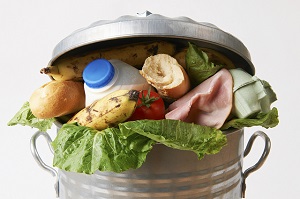
Food producers can find other businesses to sell their food waste to, thanks for a scheme to help to reduce the binning of by-products in the food industry.
The EIT Food-funded Digital Marketplace for Side Streams will help companies find ways to ‘upcycle’ waste from producing food products by connecting them with firms that can reuse them.
The team behind the project from the University of Reading and European food companies including Givaudan, Döhler, Puratos, and Pepsico have launched a database of possible ways to reuse food waste.
The online platform managed by circular economy start-up Rethink Resource can help to show companies how they can make additional money from those by-products, find out other industries that can use these by-products, and reduce the waste from food production.
Dr Afroditi Chatzifragkou, Lecturer in Food Processing at the University of Reading said:
“Companies who we’ve spoken to have all said the same thing that they would love an opportunity to make some money out of what they normally have to throw away. The problem is that most don’t know the value of these by-products or who would be interested in them.
“The idea of the Digital Marketplace for Side Streams is simply that we help to connect businesses who are interested in upcycling their waste with those who can use it. The database is set up in such a way that it will hopefully inspire firms to consider they can be involved in reducing waste from food production in this way.
“One of the great things about the Digital Marketplace is also that the scope for partnership goes beyond just the food industry. Cosmetics and pharmaceutical companies are equally able to use and benefit from by-products and reducing their consumption footprint by taking part in a circular economy like this.”
Global health, nutrition and sustainable living company DSM is a leading provider of specialty ingredients for the food industry. In the Digital Marketplace for Side Streams project DSM has been working on enzymatic processing of by-products from food production, to explore opportunities for turning waste products into a viable new ingredients.
